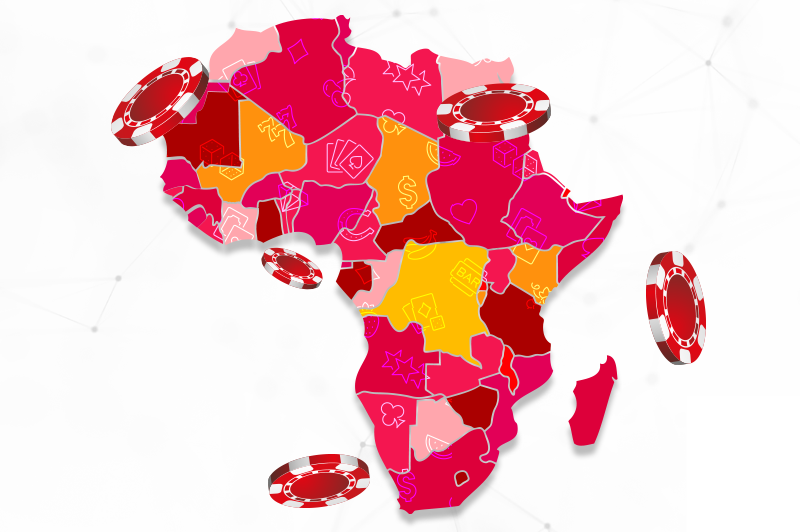The current legal landscape
Online gambling, in particular, is rarely regulated. Some countries, like Tanzania, have pioneered the development of gambling regulations in Africa, while others lag behind. Although this means that foreign operators are free to offer their products and services throughout much of Africa, this does cause uncertainty in jurisdictions where regional authorities seek to impose laws not recognised at federal level.
South Africa
The National Gambling Act of 2004 prohibits the offering of and participation in "interactive games" online, which includes all games of chance, including slots and card games. Sports betting currently accounts for 24% of the industry's revenues, and is expected to double in size within the next five years. It’s estimated that approximately half of the adult South African population places sports bets on a regular basis.
Nigeria
The gambling ban was lifted in 2004, however, online gambling is not yet regulated at the federal level. There is currently a conflict between the national regulatory body, Nigeria Lottery Regulatory Commission, and the Lagos State Lotteries Board, each claiming the right to impose regulation. Much like in the rest of the continent, online sports betting accounts for the vast majority of the GGR.
Kenya
This market is regulated by the Gaming bill of 2019. Kenya’s gambling market is, also dominated by sports betting. It is estimated that about 7 million Kenyans are currently registered for gambling services. Licenses to operate are issued by the Betting Control and Licensing Board. Applications cost around $4,200 with renewals at $1,000.
Tanzania
Regulated by the Internet Gaming Regulations 2012, updated in 2019. Tanzania has seen rapid growth in online gambling as its mobile broadband infrastructure has expanded.
Licenses can be obtained for both online casinos and online sportsbooks, and the gross gaming revenues are taxed at 25% for both types of operation.
Ghana
The Gaming Act, 2006 (Act 721) regulates the gambling industry in Ghana. The Gaming Commission is the authority established to regulate, control, monitor and supervise the operation of games of chance in Ghana, with the exception of National Lotteries which fall within the regulatory scope of the National Lottery Authority (NLA).
Licenses for sports-books will cost around $40,000, and casinos a hefty $50,000.
Uganda
Regulated under the Lottery and Gaming Act 2016. While this law doesn't explicitly apply to online gambling operations, sportsbooks offering their services via the internet are formally licensed by the country's National Gaming Board.
Ugandans are estimated to spend an average of over $40 million on gambling products each year.
Licenses are awarded by the National Gaming Board. Licensing fees are $2,700 for Sportsbook and $4,000 for casino. These are much higher for foreigners.
Gambling operators are subject to a tax of 20% on the gross gaming revenue and are mandated to withhold 15% of players’ winnings.
Conclusion
The African gambling industry is regarded as a very lucrative market, with countries like South Africa, Nigeria and Kenya presenting lots of opportunity. Economic growth alongside better technological infrastructure and willingness to regulate, provide a good ground for steady growth.

 by Shenaly Amin | 19 Aug 2021
by Shenaly Amin | 19 Aug 2021
 3-min read
3-min read




